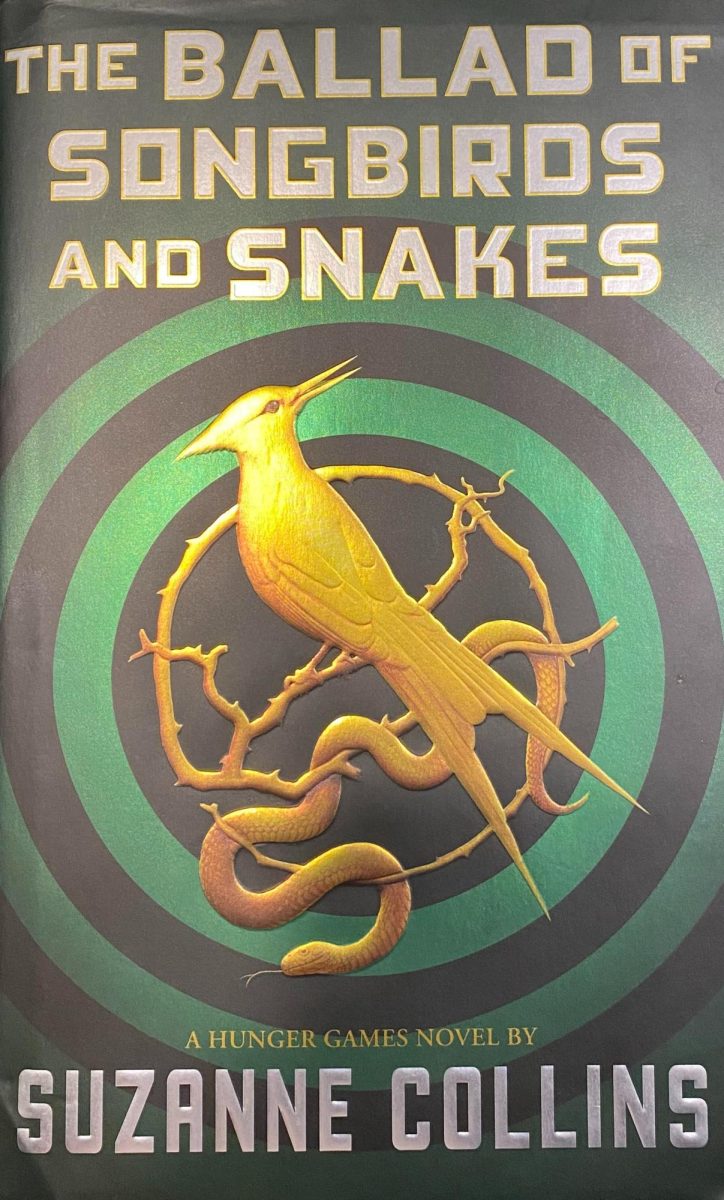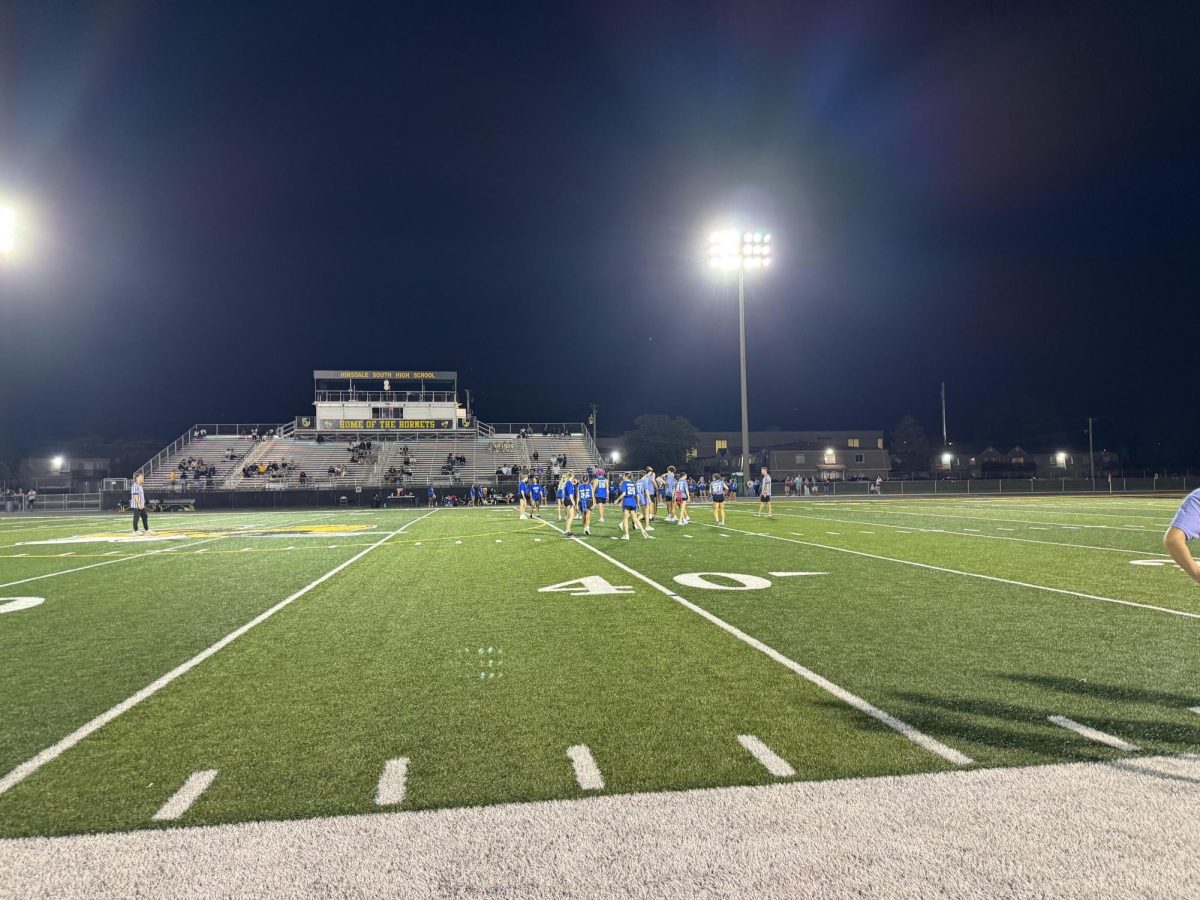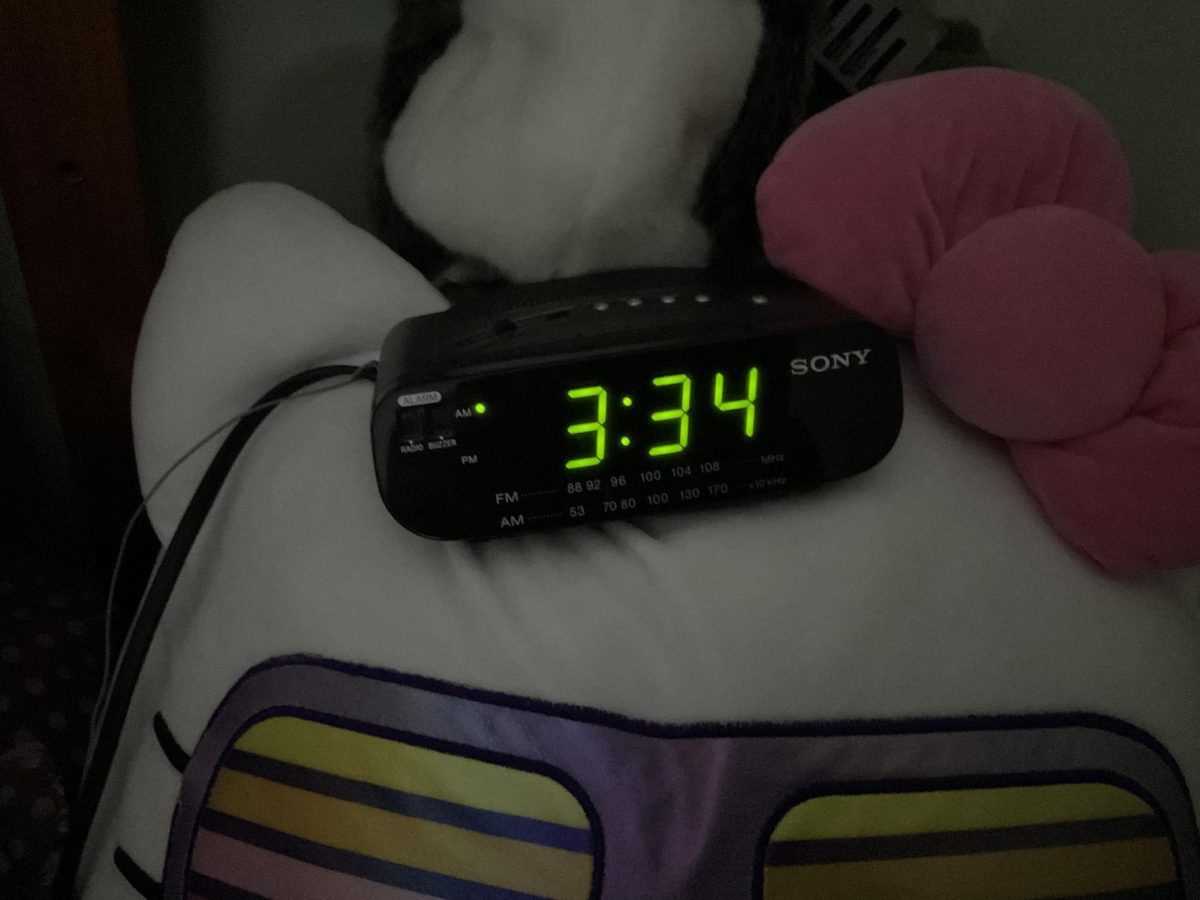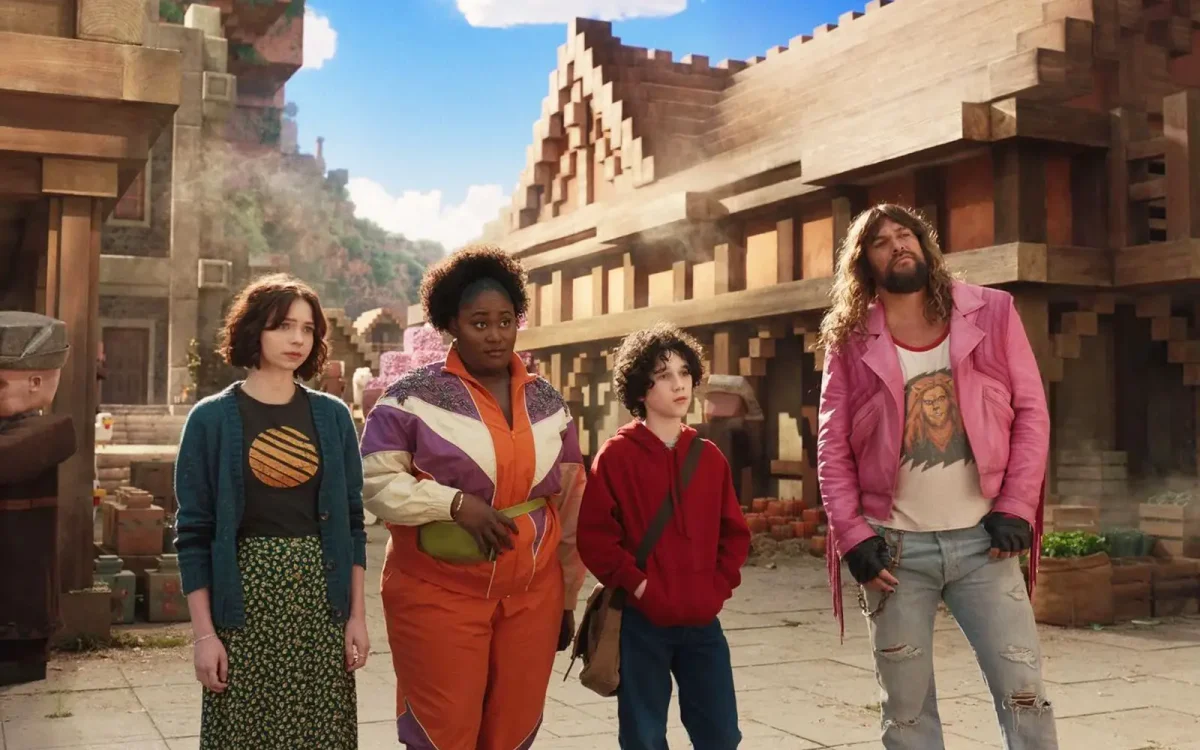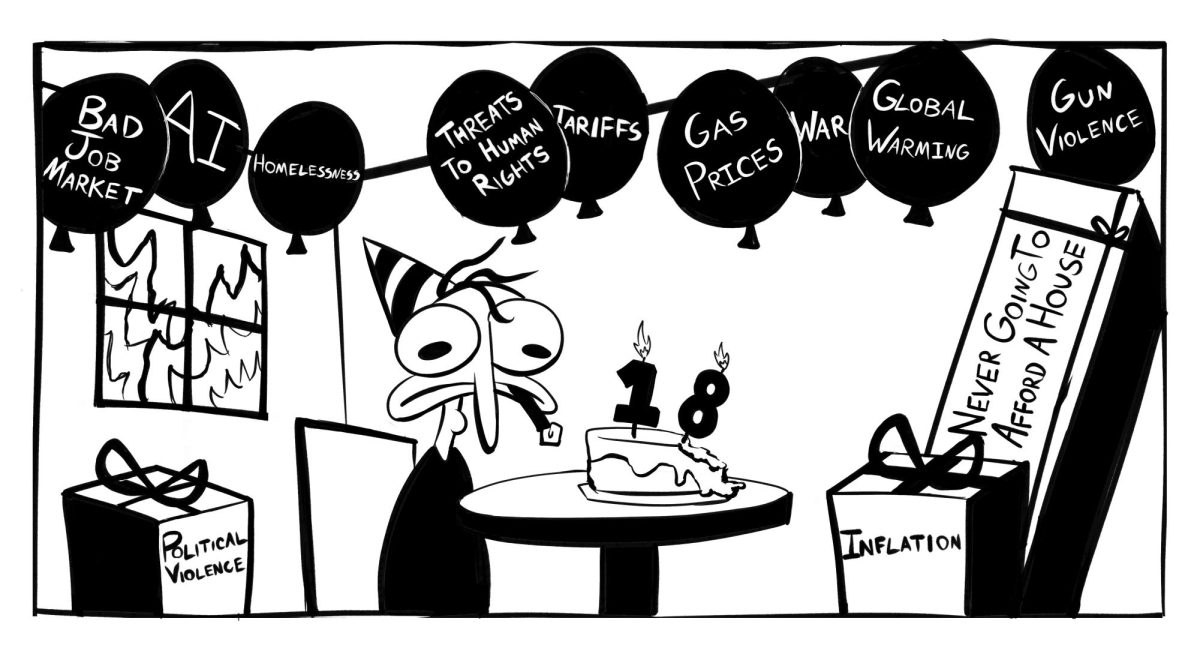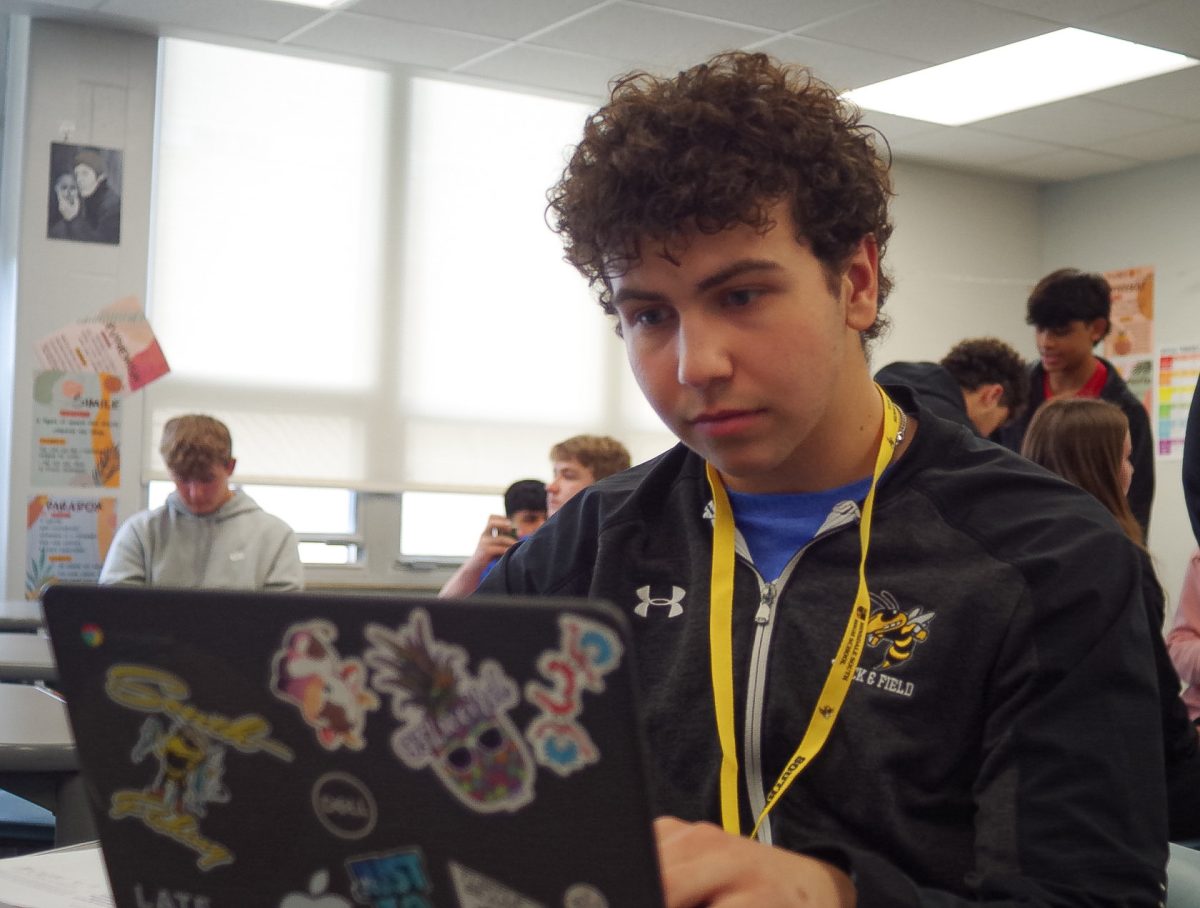Bookworms who once donned Dutch braids and posed with Nerf crossbows reunited on November 17th for the premiere of The Hunger Games: The Ballad of Songbirds and Snakes, the 5th installment in the Hunger Games franchise. Rather than returning to the story of classic characters like Katniss and Peeta, the prequel takes a glimpse at the origin of a more perplexing individual before the Hunger Games became the pinnacle of Capitol entertainment: Coriolanus Snow.
The movie once again plays on the idea of psychological warfare and how quickly groups turn against one another, touching on the principle of a social trap in which humans are inherently greedy and motivated by self-interest. It’s a reused concept, but unlike the other movies, which show an end to this ideal and a step towards unification, it demonstrates how societies become so polarized in the first place through the lens of young Coriolanus Snow, played by Tom Blythe.
In The Hunger Games: The Ballad of Songbirds and Snakes, Coriolanus is a mentor in the 10th annual Hunger Games, instructed by Viola Davis’ Dr. Gaul to turn the bloodbath into a viewing pleasure. Set shortly after the First Rebellion in Panem, Coriolanus lives an impoverished life with his cousin Tigris and his grandmother. Assigned to performer Lucy Gray Baird, a member of the Covey in District 12 with whom he becomes infatuated, he yearns for the monetary reward the mentorship offers and the power that succeeds it.
Before its release, Lionsgate received viral backlash regarding the casting of Rachel Zegler as Lucy Gray Baird. Rising star Zegler has faced criticism for comments revolving around the modern twist of Disney’s live-action Snow White and the 2023 Writers Guild of America strike. Despite the controversy surrounding her public figure, there is no doubt that she was the perfect actress to take on this role. She embodies Baird’s haunting figure, nailing witty phrases foreboding Snow’s future like, “The show’s not over until the Mockingjay sings.” In truth, she is the anti-Katniss. While Katniss is a hunter by nature and forced to capture the hearts of Panem, Lucy Gray, with her showmanship, is born to perform and tossed into a shooting range. While Katniss is a Mockingjay, Lucy Gray is just a songbird.
She carries the tune of one as well. By far one of the most anticipated moments for fans was the recreation of “The Hanging Tree” sung by Jennifer Lawrence in The Hunger Games: Mockingjay Part 1. As opposed to the rebellion anthem it grew to be for District 12, at this point, it was just a secret message passed between Lucy Gray and Coriolanus. Like the latter half of songs produced by Dave Cobb in the movie, it has bluegrass undertones fitting of the period and Zegler transforms it into the somber song it’s meant to be at heart. You can see why an army of people singing it decades later would pierce a sensitive spot in President Snow. It also just goes to show that the prequel wasn’t just a random addition by Collins, it’s a carefully crafted story that’s been in mind from the very beginning
Regarding the book, I was disappointed to discover that they discarded one of the most evocative scenes to shorten the movie. The franchise is notorious for this. We all remember how the mutts in the first movie were supposed to look like the dead tributes, right? After the death of a Capitol girl and her tribute, a funeral is held in which a horse-drawn carriage parades the Capitol girl’s corpse. In contrast, the mangled body of the tribute is hung from a crane by which the remaining tributes are shackled. It’s a gory but impactful representation of the exacerbated prejudice in this society. Capping at 2 hours and 38 minutes, it’s understandable why they made this decision; though I was on the edge of my seat the whole time, those who hadn’t read the book seemed to be yawning their way through it. With it being the longest book to date in the series, the movie could have easily been split into two parts like Mockingjay rather than multiple chapters.
The movie also fails to pinpoint Coriolanus’ emotions and intentions. It’s easy to assume that most of the actions Coriolanus takes are altruistic and based on his supposed love for Lucy Gray, so it seems abrupt when he first begins to show signs of betrayal. Within the book, having a window into his internal thoughts allows for further character exploration and development. Most of his actions are fueled by a greedy desire for the fortune promised by Dr. Gaul. Though his interactions with Lucy Gray are intimate at first, they slowly devolve into obsession and control. He continuously questions her loyalty and lacks trust in her because of her position in the districts. Eventually, she becomes akin to a prized possession he wishes to show off to the rest of the Capitol rather than a star-crossed lover.
Through his encounters with characters like Lucy Gray and Sejanus Plinth, it’s apparent that his villainy doesn’t just appear. It is deeply rooted in him from his upbringing in the Dark Days, intensifying due to constant exposure to class warfare in the Capitol, arena, and District 12. As Lucy Gray remarks, “People aren’t so bad really. It’s what the world does to them.”
For readers of Suzanne Collins, it’s a piece of art and a brilliant addition to the series despite its rushed nature. For those who have only watched the movies, it falls short, coming across as slow and confusing.
In the words of Coriolanus Snow, it either lands on top or falls.

